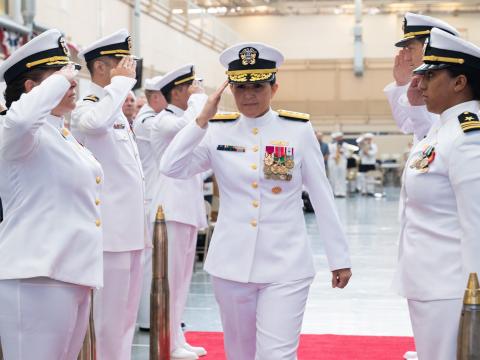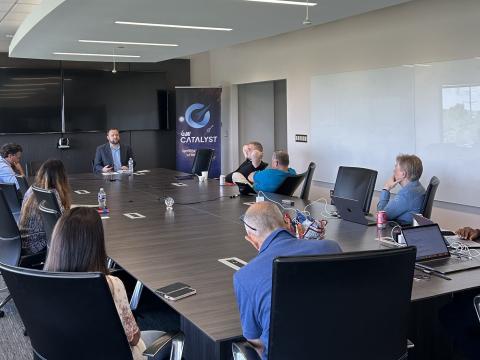U.S. Joint Task Force, Philippine Forces Collaborate to Fight Terrorism
The Armed Forces of the Philippines and the Joint Special Operations Task Force-Philippines have teamed up to stop terrorist activities and to improve the quality of life for Philippine citizens.
The Armed Forces of the Philippines (AFP) and the Joint Special Operations Task Force-Philippines (JSOTF-P) have teamed up to stop terrorist activities and to improve the quality of life for Philippine citizens.
News Editor Rita Boland's article "Support of Philippine Forces Secures the United States," found in this month's issue of SIGNAL Magazine, discusses how the two agencies use a "whole-of-government approach" to accomplish their mission.
The JSOTF-P supports the Philippine Security Forces, which includes the AFP and Philippine National Police, in three ways: capacity building, civil military engagement and information sharing. In capacity building, the JSOTF-P and the AFP offer training programs aimed at increasing capacity and improving capabilities. For civil military engagement, the JSOTF-P partners with the AFP and other organizations to deliver humanitarian assistance. To provide information-sharing help, the United States shares intelligence data to assist the AFP in planning future operations.
Both nations benefit from the partnership: The Philippines receives help in fighting terror groups, and that reduction in terrorist activities decreases threats to U.S. interests.
JSOTF-P's commander, Col. William Coultrup, USA, explains how humanitarian outreach and antiterrorism efforts complement each other:
Humanitarian operations show the people that the AFP and the Philippine government are making tangible efforts to improve their welfare, making them more likely to support the government's efforts to eradicate terrorist groups.The collaboration naturally has some challenges. Counterinsurgency takes time, for example, and much work lies ahead to develop local law enforcement and judicial and governing institutions. Cultural differences also play a factor. Despite the challenges, the partnership has had much success reducing terrorism in the Phillipines. The terrorist groups presenting the biggest threats are Jemaah Islamiyah and the Abu Sayyaf Group. The AFP has succeeded in splintering the Abu Sayyaf Group, making it unable to launch a serious attack since 2005. Its membership has been reduced to 500, compared with more than 1,200 several years ago. Jemaah Islamiyah has seen its numbers shrink as well. The two agencies continue to focus on making the collaboration an effective one, with the JSOTF-P and the AFP completing more than 100 infrastructure projects between 2008 and 2009. You can read and comment on the full article here, or you can share your thoughts here at SIGNAL Scape as well. Also check out the JSOTF-P blog to read about the latest news within the task force.




Comments